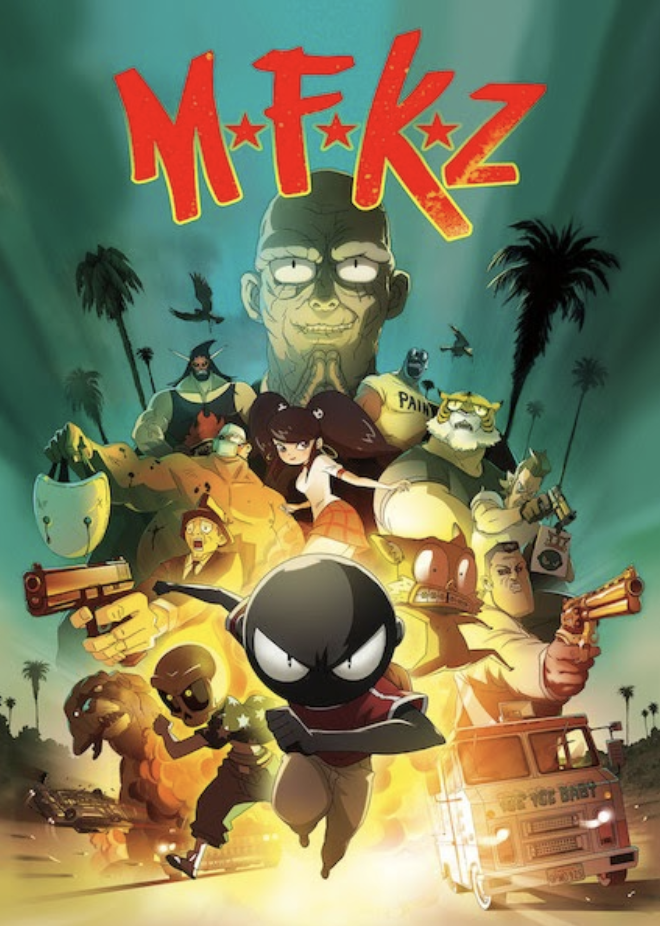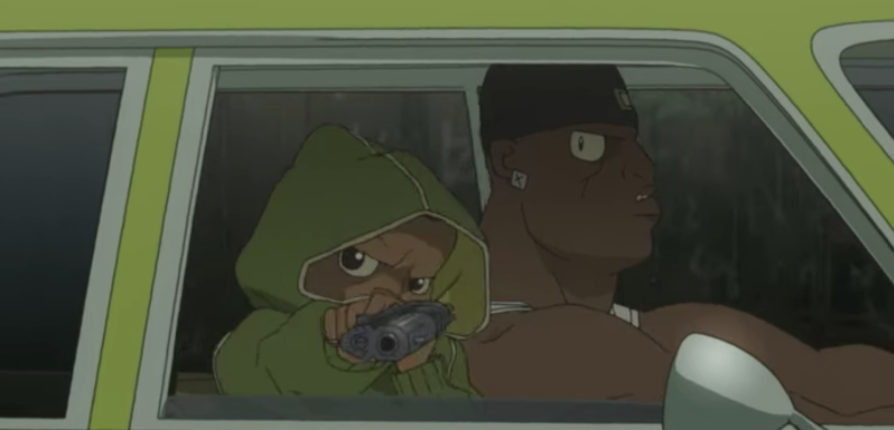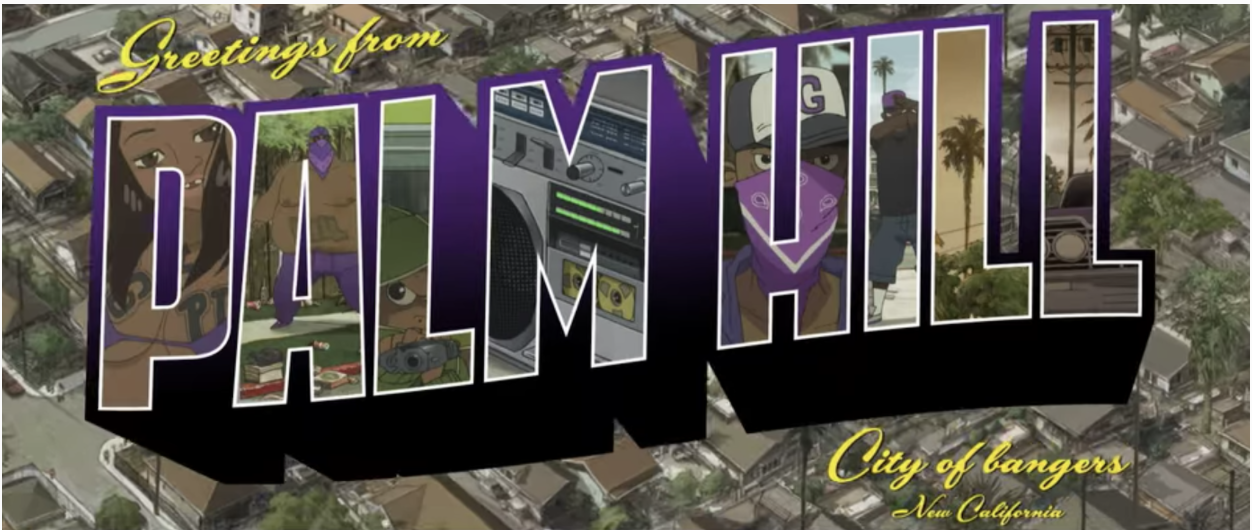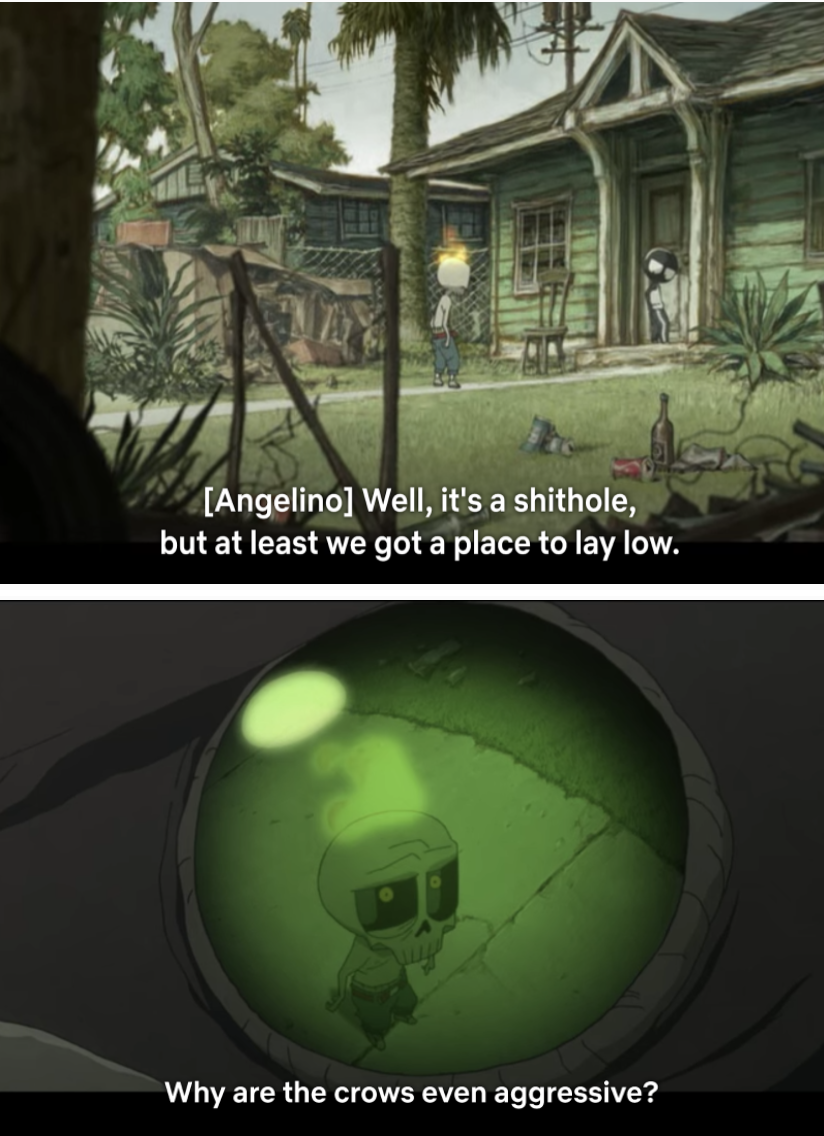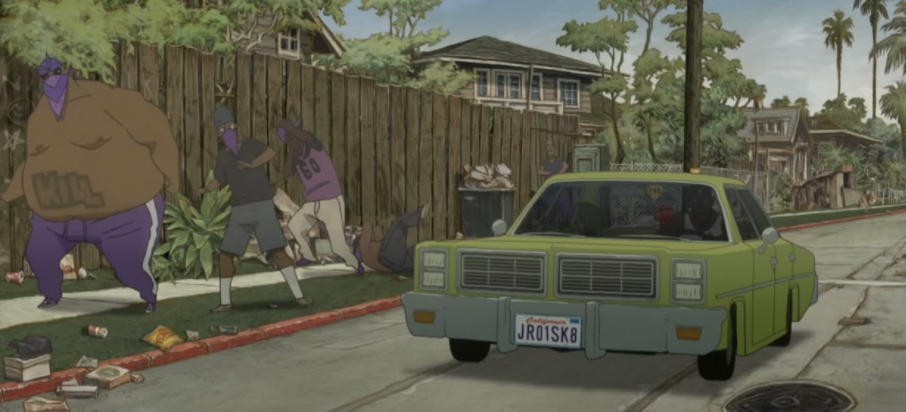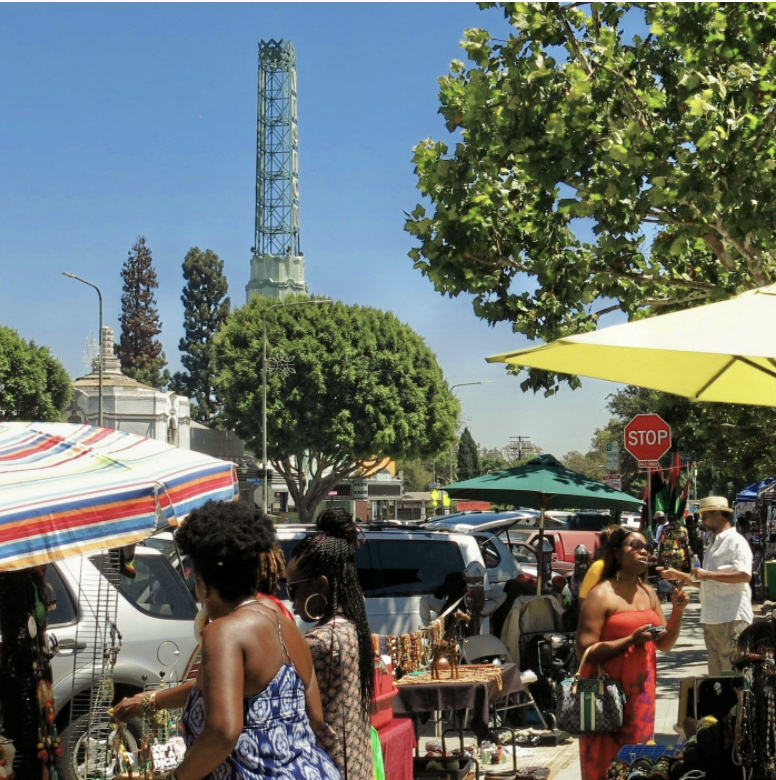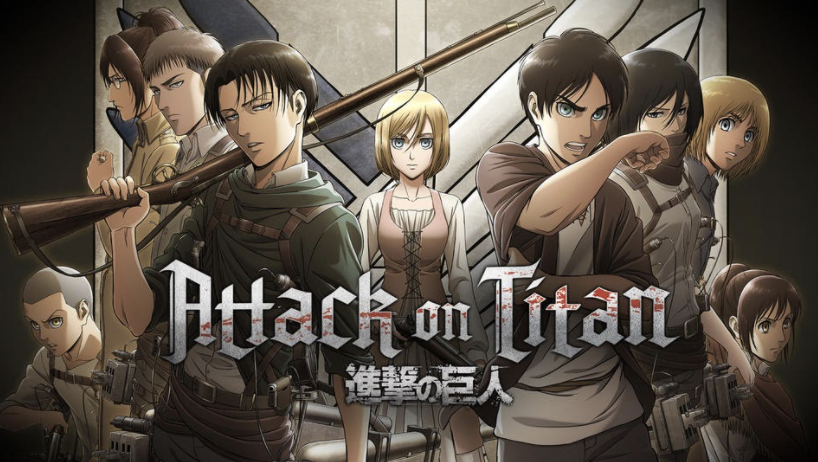|
by Saprina Howard MFKZ, short for motherfuckers, is a tasteless anime film written, produced, and directed by a slate of non-American men. It follows the life of an African American alien character named Angelino, who is “ just one of thousands of deadbeats living in Dark Meat City. ” (IMBD Synopsis) Aside from the obvious ode to Los Angeles in the protagonist’s first name, this synopsis is LOADED with coded racial language like “deadbeats” and “Dark Meat City.” The film may be fantasy, but it is clearly a portrayal of non-Hollywood Los Angeles. One may argue that to critique a “fantasy” film on the terms of real life is unreasonable. Oftentimes where race is present in anime, a colorblind audience is quick to discredit any harmful meaning in the overtly offensive depiction of African American culture. However, to truly dissect a film we should put it into context-- into its place and time. Whenever a hideously drawn Black character makes their way onto the screen, Black viewers cringe. Too many times Black anime consumers must quell a sickening feeling as they watch caricatures perform violent, loud, or inhuman behaviors. Many of the Black characters in this film are racial caricatures lifted straight out of Jim Crow era Minstrel shows! They remarkably resemble a mix between a Pickaninny and a Buck. Even in anime, known for its limitless potential and imagination, Black people are not imagined outside of the confines of reality’s burdensome stereotypes. The directors of this film and their internalized anti-Black ideas are to blame. The professional team behind the creation of this film are from France and Japan; nations that refuse to acknowledge their Black population. Japan denies Japanese identity to half-Black citizens and France suffers so badly from colorblindness that it’s illegal to consider race! Anti-Blackness is programmed into the citizens of both of these societies. With small Black communities unable to represent themselves in French and Japanese societies, both countries remain largely persuaded by negative portrayals of Blackness in the media. If art is a reflection of one’s values, then this film reeks of the creators’ anti-Black sentiments. It is a highlight reel of every racist thing they have ever thought about Black people. Let us focus on the depiction of one neighborhood from the film: In the film a neighborhood named Palm Hill seems to be an interpretation of the Palmwood cul-de-sac and Baldwin Hills, both historically Black communities. MFKZ embraces the trope that Palmwood is violent, filthy, and that gun violence, drugs, and joblessness run rampant. In the movie the neighborhood is so chaotic that even people’s homes are falling apart. These myths about Blackness and Black neighborhoods have been popular since the Transatlantic Slave Trade. After emancipation in 1863, codes and vagrancy laws criminalized Black people who were unable to find work and justified terrorizing free black folk for demonstrating their human right to freedom. Since then, vagrancy myths that conjure stereotypes of laziness, deviance, and aggression were popularized by the western world’s media and have remained the main examples of African American culture for some homogenous societies to this day. The film's atrocious depiction of Black inner city life misses the mark, as well as an opportunity to creatively engage an anime version of the beauty that already exists in Baldwin Hills and the Palmwood neighborhood. Instead, the hideous Palmhill neighborhood in MFKZ serves as a cesspool of racial tropes and plotless violence. Japanese anime creators endlessly reimagine medieval Europe. With eurocentricity and whiteness so romanticized as part of anime’s visual appeal, this is evidence that anime is not colorblind. Race and reality are augmented within anime worlds and if white culture earns reverence by anime creators, then they can certainly find it in themselves to revere Black culture too.
Black people are famously consumers and lovers of Japanese pop culture who deserve more respect than anime currently alots its Black audience. When anime creators finally appreciate the richness and nuance of Black culture instead of demonizing or bastardizing Blackness, maybe Black audiences can breathe a sigh of relief instead of holding their breath for not knowing which racist portrayal comes next.
95 Comments
|
Archives
March 2024
Writers
All
|
